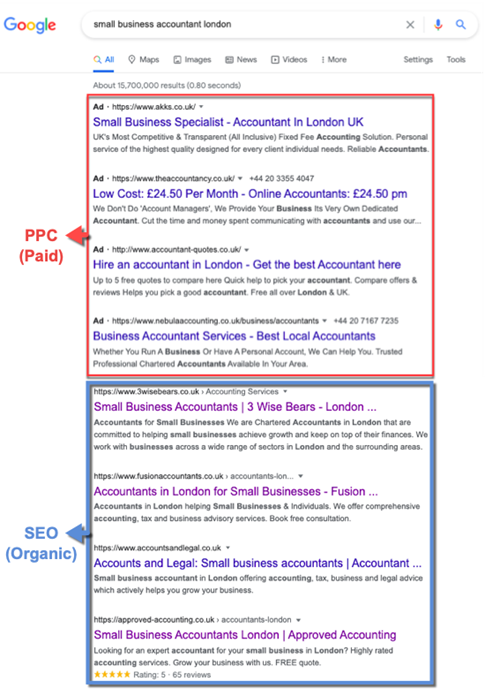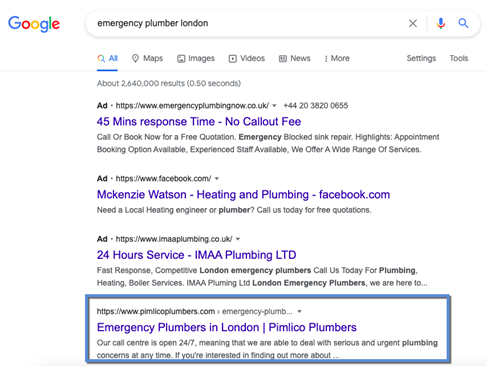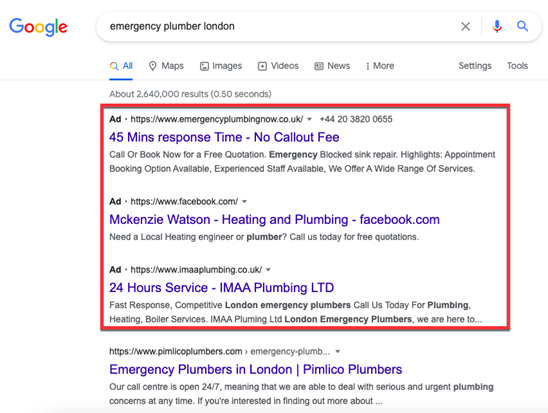What is the difference between SEO and PPC?
Deciding where to invest your time and resources to promote your website can be a difficult task. If you’ve already done some research, you may be wondering: is search engine optimisation (SEO) or pay-per-click (PPC) advertising better for your site and business? Which one’s more effective at building an online audience and attracting more visitors and potential customers to your website? And better yet, should you use both?
There’s no right or wrong answer. It depends on your type of business and the industry you’re in, your goals, as well your budget and other resources.
In this post, we’ll explain what SEO and PPC mean, why they’re useful, and how to decide between these two important online marketing tactics. Hopefully, the information in this post will help you understand the pros and cons of both SEO and PPC, and how they can drive growth for your business.
Need help with your SEO and PPC? Try our Digital Marketing Suite. It offers an SEO tool that will help you identify the right keywords for your site and a PPC ad builder to help you create ads on Google in a matter of minutes.
What is the difference between SEO and PPC?
A quick way to understand the biggest difference between the two is to run a quick search on Google. So, say you’re looking for a small business account in London and you use these terms to run a Google search. You hit enter and this is how PPC and SEO look on Google’s first page of search results:

How can you tell the difference between the two?
In short, the first results that are at the top and marked “Ad” are PPC ads that are run through Google Ads, Google’s online advertising platform.
The second set of results that is lower down the page and always below the ads is made out of organic results from SEO efforts. These organic results are generated by Google based on a complex algorithm and hundreds of factors.
Now, both sets of results are displayed when someone searches for something like “small business accountant London”. No wonder it’s confusing. So, let’s dig deeper into both SEO and PPC and explain the pros and cons for each.
What is SEO?
SEO stands for search engine optimisation. It refers to the practice of using content and many other tactics to convince Google that your site is legit, trustworthy, filled with quality, relevant, and useful information for people using the search engine. If you do SEO right, Google rewards your site with a higher spot in the organic search results, also known as rankings.
Here is an example of a site that does SEO right and has managed to rank at the top of the organic results on Google:

Why are rankings important? Because most people look at and click on the results on the first page. Some go to the second and third page but very few go further than that. This means that you’re more likely to attract visitors if your site shows up at the top of the organic results on the first, second, and third page.
But how do you get there? This is where it gets complicated. Google has hundreds of ranking factors to evaluate and rank a website, such as:
- The use of keywords in meta titles and descriptions, as well as H1 tags. This is one of the things that help search engines understand what a site is about.
- Site speed and how long it takes for a page to load for visitors. If it takes too long to load, it can drive visitors away and affect your rankings as a result.
- The quality and recency of the content.
- The number and quality of sites linking to yours. Search engines interpret these links as trust signals that you’re providing quality content, products, and services that people are happy to recommend to others.
- A responsive design that provides visitors with a great experience on your site, regardless of the device they’re using to visit and browse through your site.
A good place to get started with SEO is to read our post on six SEO beginner tips to boost your website’s visibility in the search engine results.
So, should you use SEO for your website? Let’s quickly go through the pros and cons of SEO.
The pros of SEO
- Every site owner should invest in SEO. It’s not just because organic clicks are free but also because it’s a long-term strategy to improve your site’s visibility in the search engines. Even if you do a PPC campaign, you can’t be paying for visibility and clicks all the time.
- It helps your site to be visible in the search engine results long-term. If you do SEO right, your rankings and traffic from the search engines can remain relatively consistent.
- It’s in your best interest to have a great site that provides visitors with quality content and an experience they’ll enjoy, want to come back to, and recommend to others. PPC ads can immediately drive more visitors to your site, but once they’re there, your site needs to do all the work to persuade them to take that next step and buy from you. Good SEO practices can help with that.
The cons of SEO
- SEO takes time, especially if you’ve just published your site. How much time? It can take months before your site starts to show up on the first page, maybe more if you’re in a very competitive industry.
- SEO takes effort. You need to invest time to optimise your website for SEO, create useful content regularly, build links, and more.
- It’s an ongoing process. There’s always work to be done, especially with search engines like Google making changes to its algorithm. You’ll need to stay up to date if you want to stay ahead of your competitors.
What is PPC?
PPC stands for pay-per-click. It refers to paid advertising on search engines like Google. This means that you create an ad to have your site show up when someone’s running a search for your specific keywords, and then pay each time a person clicks on your ad.
Here’s an example with some PPC ads that show up when searching for emergency plumbers in London:

With SEO, you don’t pay when people click on one of your search results, but with PPC ads you pay every time someone clicks on your ad. Depending on your type of site, business, and industry, you can pay hundreds, if not thousands of pounds every day to drive visitors to your site.
So, should you use PPC advertising for your website? Let’s quickly go through the pros and cons of PPC.
The pros of PPC
- You get fast results. As soon as your PPC ads are live and people start seeing them at the top of the search results, you’ll start to get clicks and traffic. This brings instant visibility to your site and business.
- You can target specific customers and also run specific types of ads and formats such as search ads, shopping ads, video ads, and more.
- You don’t have to worry about changes to search engine algorithms. You’re paying for the top spots, so your organic SEO efforts and rankings won’t matter as much.
The cons of PPC
- Unlike SEO, paid-per-click advertising is, well, paid. You have to pay for every click on an ad, even if the person visiting your site doesn’t end up buying from you.
- Click costs vary depending on your type of site, business, and industry. If you’re in a crowded industry with lots of businesses competing for a top spot in the paid search results, you may have to pay more to show up in the results.
- There’s a learning curve to PPC. If you want to create a compelling ad that includes the right keywords, and not pay more than you have to, you need to spend some time learning how PPC works. Otherwise, you might need to pay for an agency or a professional to manage your PPC ad campaigns.
- Traffic from PPC stops the second you turn ads off. If this is your only source of traffic and your site can’t survive without paid ads, you might want to consider SEO for long-term traffic to your site.
So, should you invest in SEO or PPC?
There’s no right or wrong answer. It depends on your time, resources, goals, and budget. If you’re just getting started online and need immediate visibility in the search engines and traffic to your site, you can give PPC a try. At the same time, you can take steps to properly optimise your site for SEO and ensure that it’s quality, trustworthy, loads quickly, and provides an overall good experience to anyone who visits it.
Don’t forget, our Digital Marketing Suite offers an SEO tool that will help you identify the right keywords for your site and a PPC ad builder to help you create ads on Google in a matter of minutes.
